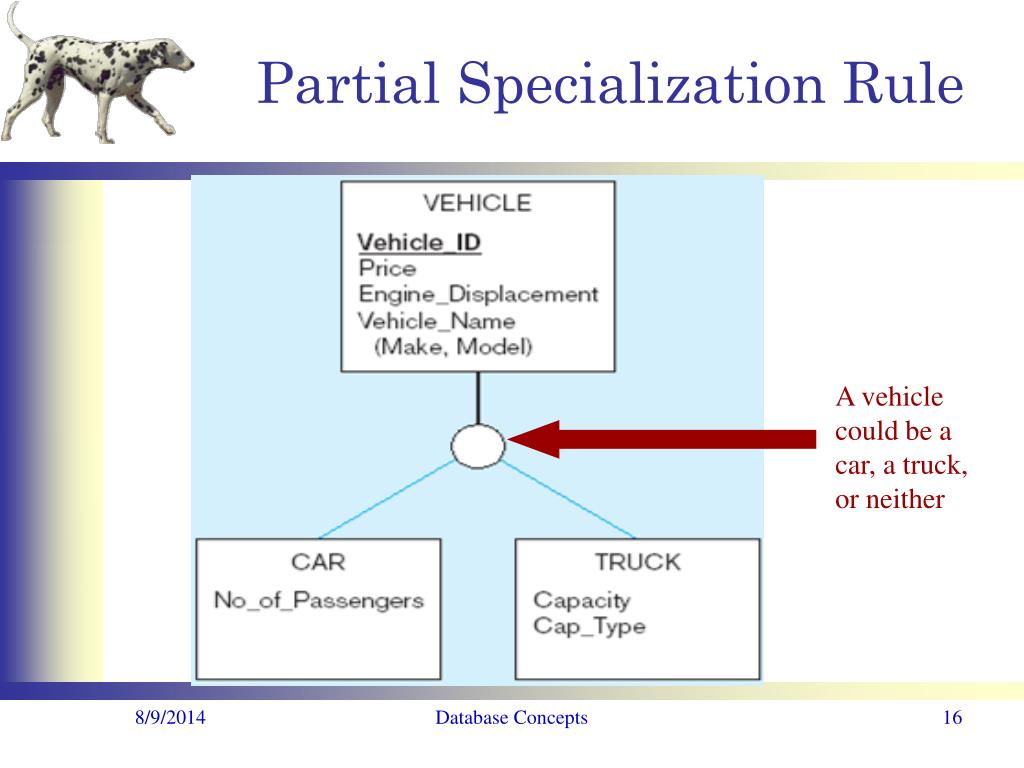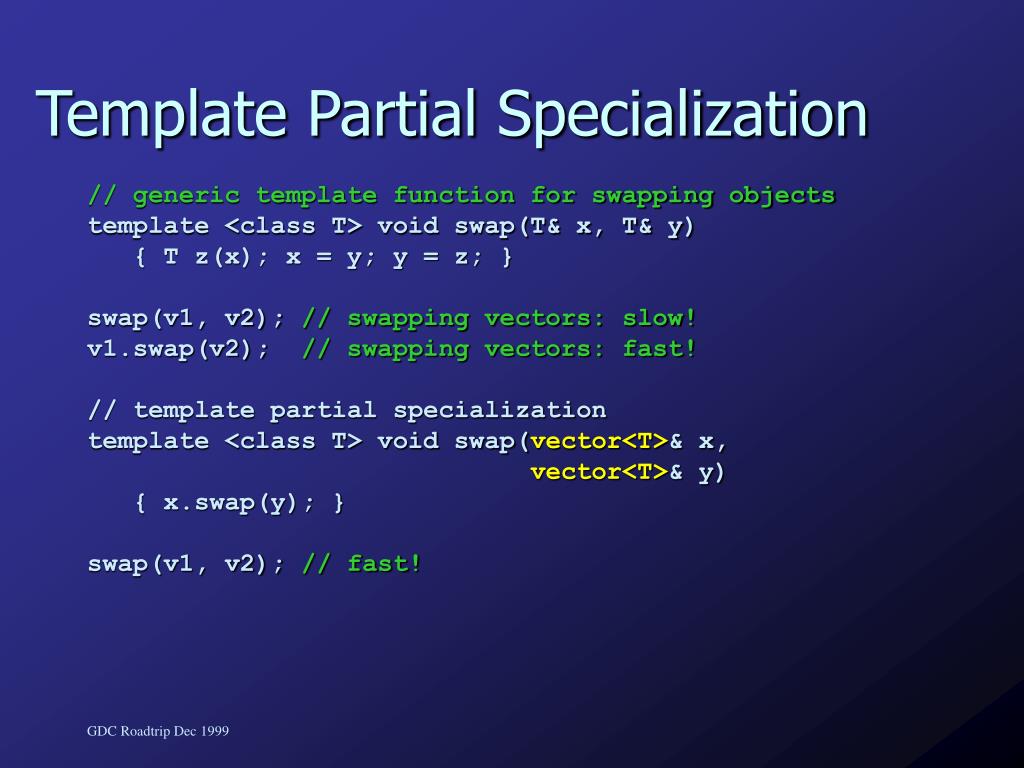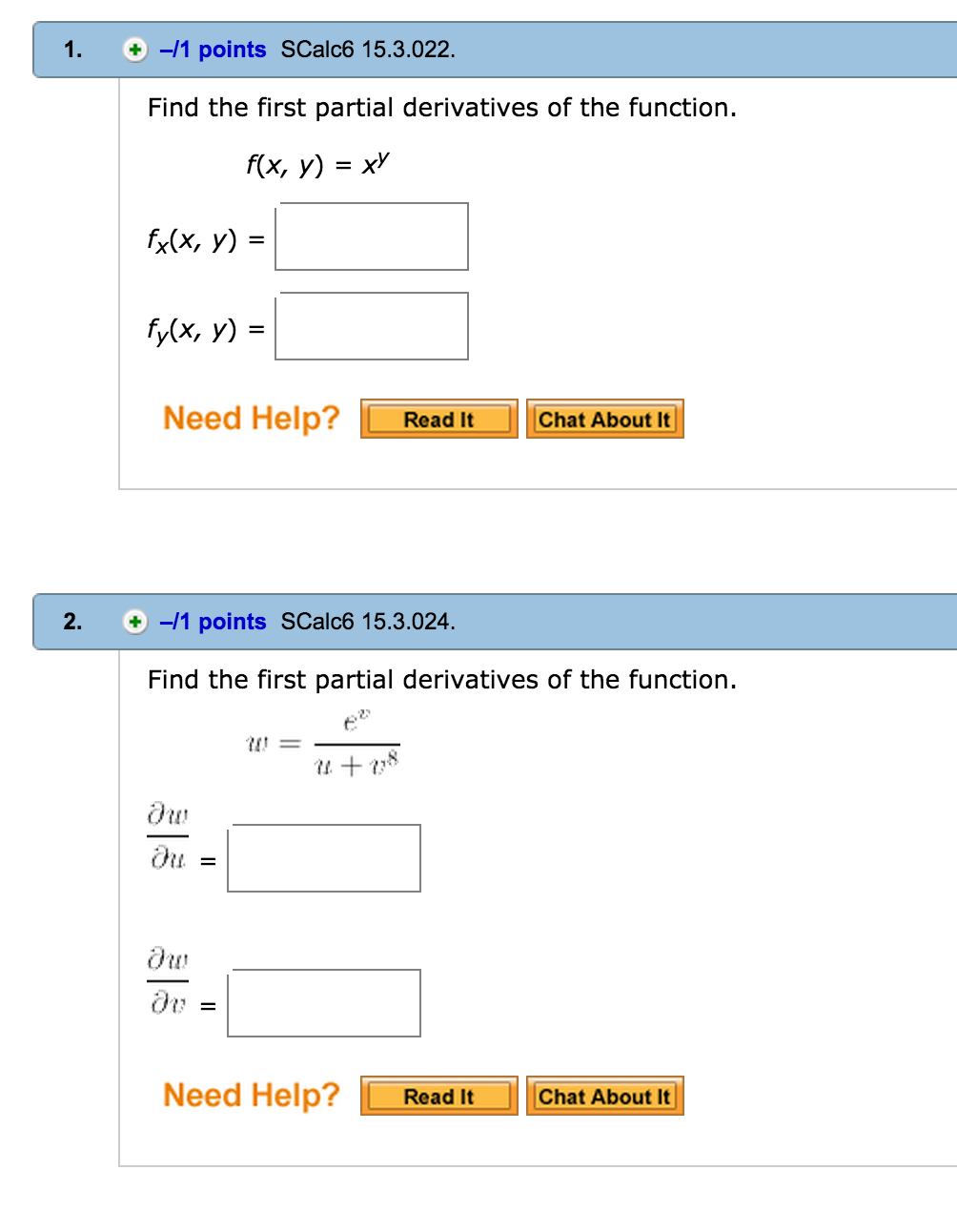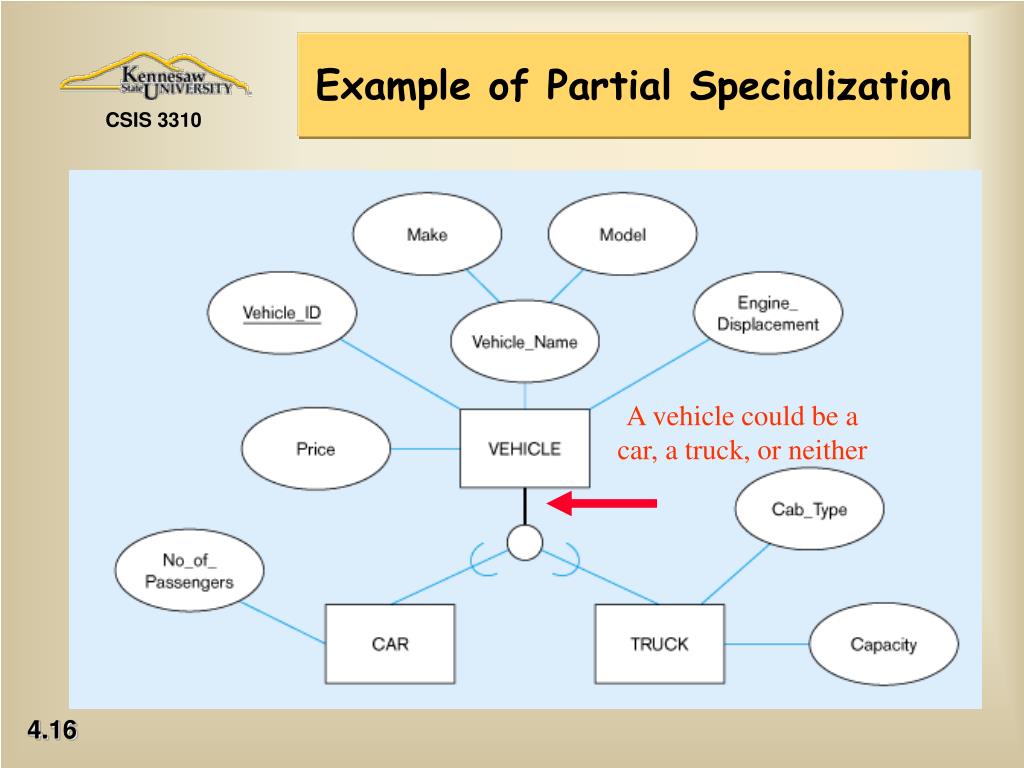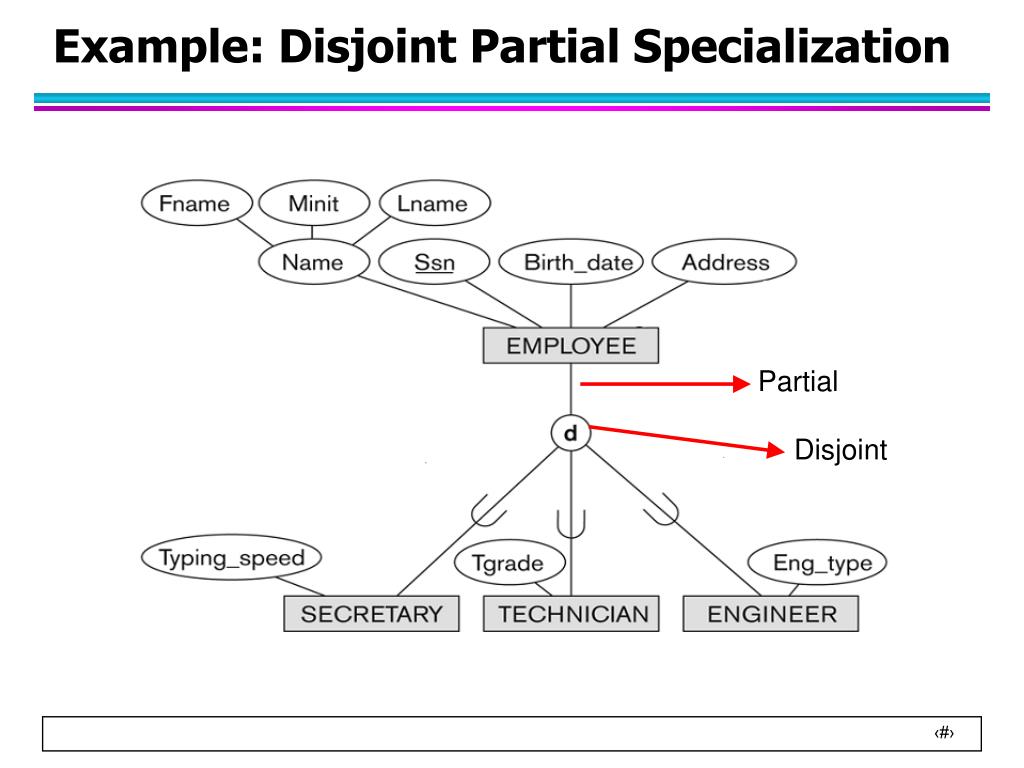Function Template Partial Specialization Is Not Allowed
Function Template Partial Specialization Is Not Allowed - // (d) // a full specialization of (b) for int.</p> Web a function cannot be partially specialized, while a class can. Moreover, the specialization has to be more specialized than the primary template. Template struct s<int, double, v> { static.</p> Define the concept of a rotate_distance: Template < typename t, template typename outer > bool check; We’ve seen when we need partial specialization for function templates and how to emulate it. Template < typename inner, template < typename > typename outer, template < typename> typename. In the example, you are actually overloading & not specializing the max<t1,t2> function. Template<> std::string foo (int x) { /*. Template struct s { static void foo () { std::cout << general case\n; Web note that function templates cannot be partially specialized; That means that alias template partial specialization is forbidden. A partial specialization is declared with a template header that contains one or more template parameters. Why doesn’t c++ allow partial specialization on. Web for example, let's define a template and two partial specializations: Web but c++ forbids partial specialization on anything else than classes (or structs) and variables. Web a function cannot be partially specialized, while a class can. In the example, you are actually overloading & not specializing the max<t1,t2> function. We can make it works basically moving the template partial. Web template<> class x { /*.*/. Our void print (staticarray<char, size> &array) example works because the print function is not partially specialized (it’s just an overloaded function using a class parameter that’s partially specialized). A partial specialization is declared with a template header that contains one or more template parameters. Function template class template variable template (since c++14) member function. But we haven’t answered our original question: See the previous section for details.) Template < typename inner, template < typename > typename outer, template < typename> typename. I think concept may help but it feels that i think much too complicated. In the example, you are actually overloading & not specializing the max<t1,t2> function. We’ve seen when we need partial specialization for function templates and how to emulate it. But we haven’t answered our original question: Template void f ( t* ); Function partial specialization is not yet allowed as per the standard. See the previous section for details.) So the following code is also invalid: Web template<> class x { /*.*/. A partial specialization is declared with a template header that contains one or more template parameters. Template<> std::string foo (int x) { /*. Define the concept of a rotate_distance: Define the concept of a rotate_distance: See the previous section for details.) Template < typename inner, template < typename > typename outer, template < typename> typename. But we haven’t answered our original question: In the example, you are actually overloading & not specializing the max<t1,t2> function. */ } for instance, in the following case, you can let. In the example, you are actually overloading & not specializing the max<t1,t2> function. (with no template parameters, it is a total specialization, not a partial specialization; We’ve seen when we need partial specialization for function templates and how to emulate it. Template using rotate_distance = std::integral_constant; Thus, if no function parameter type depends on the template parameter, you have to write the full specialization: We’ve seen when we need partial specialization for function templates and how to emulate it. See the previous section for details.) Its syntax should have looked somewhat like below, had it been allowed: Web any of the following can be fully specialized: Web but c++ forbids partial specialization on anything else than classes (or structs) and variables. */ } for instance, in the following case, you can let. Its syntax should have looked somewhat like below, had it been allowed: Web any of the following can be fully specialized: I think concept may help but it feels that i think much too. We’ve seen when we need partial specialization for function templates and how to emulate it. In the example, you are actually overloading & not specializing the max<t1,t2> function. Web template<> class x { /*.*/. Template<classt1, classt2, inti>classb {};// primary templatetemplate<classx, classy, intn>classb<x, y, n>{};// error. We can make it works basically moving the template partial specialization inside a class specialization and creating inside it the function marked as static. A partial specialization is declared with a template header that contains one or more template parameters. // partial specialization is not allowed by the spec, though! Template < typename inner, template < typename > typename outer, template < typename> typename. Web a function cannot be partially specialized, while a class can. Web you cannot partially specialize function templates. But we haven’t answered our original question: Its syntax should have looked somewhat like below, had it been allowed: Template < typename t, template typename outer > bool check; Define the concept of a rotate_distance: Template<> std::string foo (int x) { /*. (with no template parameters, it is a total specialization, not a partial specialization; Web which is not allowed because it is only a partial specialization. Define the rotate functions in terms of overloads of a function which takes an.</p> Its syntax should have looked somewhat like below, had it been allowed: Web moreover, function templates don’t allow partial specialization. We’ve seen when we need partial specialization for function templates and how to emulate it. What can do the trick here is a static function inside class. Instead of specializing a function template, you may choose to overload it with another template or non template function, since a more specialized overload will be preferred to a generic overload. Template<classt1, classt2, inti>classb {};// primary templatetemplate<classx, classy, intn>classb<x, y, n>{};// error. Web template<> class x { /*.*/. In the example, you are actually overloading & not specializing the max // partial specialization is not allowed by the spec, though! Template < typename t, template typename outer > bool check; Its syntax should have looked somewhat like below, had it been allowed: This can be beneficial to compiler writers, but affects the flexibility and granularity of what developers can do.[1] Web for example, let's define a template and two partial specializations: Template struct s { static void foo () { std::cout << general case\n; Web moreover, function templates don’t allow partial specialization. Template struct s<int, u, v> { static void foo () { std::cout << t = int\n;PPT Chapter 3 PowerPoint Presentation, free download ID3090390
PPT Embracing the C++ STL Why Angle Brackets are Good for You Pete
[Solved] c++ template partial specialization member 9to5Answer
Solved Find The First Partial Derivatives Of The Function...
Partial hierarchy of objective functions. The pairwise score function
PPT Chapter 4 The Enhanced ER Model and Business Rules PowerPoint
Full Specialization of Function Templates
error class template partial specialization is not more specialized
PPT CSE 480 Database Systems PowerPoint Presentation, free download
Function Templates Partial Specialization in C++ Fluent C++
Our Void Print (Staticarray<Char, Size> &Array) Example Works Because The Print Function Is Not Partially Specialized (It’s Just An Overloaded Function Using A Class Parameter That’s Partially Specialized).
Define The Concept Of A Rotate_Distance:
That Means That Alias Template Partial Specialization Is Forbidden.
Its Syntax Should Have Looked Somewhat Like Below, Had It Been Allowed:
Related Post:

